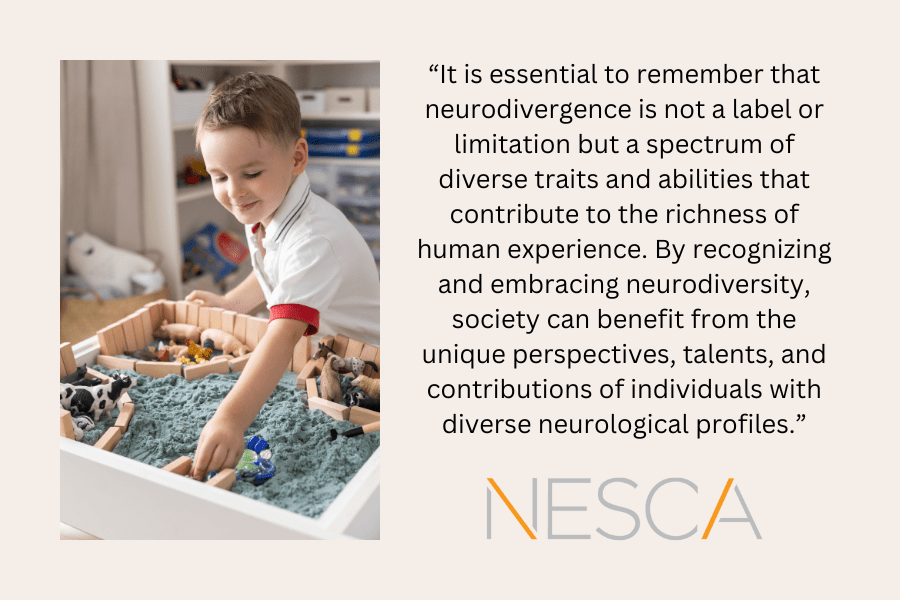
 By: Alissa Talamo, PhD
By: Alissa Talamo, PhD
Pediatric Neuropsychologist, NESCA
While it is important for children to have the summer to relax and recharge, summer is also an opportunity to make reading a fun and enjoyable experience. Research demonstrates that students who do not read over the summer are more likely to “slide” or lose skills during that time period, while students who read can avoid the slide and actually improve their reading skills. Reading also provides significant benefits, including expanding your child’s general knowledge, improving spelling skills, increasing vocabulary, and even improving focus and attention.
According to Sally Shaywitz, MD, author of the book, Overcoming Dyslexia, students who read for less than a few minutes a day (outside of school) are exposed to approximately 8,000 written words per year compared to a child who reads for 20 minutes per day who is exposed to 1.8 million words per year. Reading also exposes children to vocabulary that is more expansive than what they hear on a day-to-day basis, and it provides them with examples of different types of grammar and syntax. How do we encourage children to read in a stress-free manner? Here are some ideas…
- Set a reading time where you and your child read together. Make it more fun by creating a special reading space for them in their room or elsewhere in the home.
- Connect an activity with the reading. For example, if your child likes to read about animals, reward reading books about animal with a trip to the zoo.
- Let your child sign up for their own library card and allow them to check out a few books per week.
- Explore interactive reading apps that can be customized for your child’s age and reading level. For young readers, some good apps include www.readingrockets.org and starfall.com.
- Listen to audiobooks together.
- Provide opportunities for reading outside of the home. For example, you can keep books in the car or pack them for a day on the beach.
- Remember – it does not need to be a chapter book to count as reading! For example, some students might enjoy reading magazines in their areas of interest. There are several magazines specifically designed for kids. Find the one that interests your child. Some examples include TIME for Kids, Sports Illustrated for Kids, or National Geographic Kids.
- Kids who don’t like to read to themselves may still enjoy being read to. Talk with your child about what topics they want to learn more about and then look for nonfiction books on that subject. Try to find some they can read independently as well as books you can read aloud.
- Finally, encourage your child to try books from different series. This way, when they find a series they like, there will be more books for them to read and enjoy!
Resources
Sally Shaywitz, MD, Overcoming Dyslexia (2020 Edition): Second Edition, January 4, 2005
www.scholastic.com/parents/books-and-reading
About the Author

With NESCA since its inception in 2007, Dr. Talamo had previously practiced for many years as a child and adolescent clinical psychologist before completing postdoctoral re-training in pediatric neuropsychology at the Children’s Evaluation Center.
After receiving her undergraduate degree from Columbia University, Dr. Talamo earned her doctorate in clinical health psychology from Ferkauf Graduate School of Psychology and the Albert Einstein College of Medicine at Yeshiva University.
She has given a number of presentations, most recently on “How to Recognize a Struggling Reader,” “Supporting Students with Working Memory Limitations,” (with Bonnie Singer, Ph.D., CCC-SLP of Architects for Learning), and “Executive Function in Elementary and Middle School Students.”
Dr. Talamo specializes in working with children and adolescents with language-based learning disabilities including dyslexia, attentional disorders, and emotional issues. She is also interested in working with highly gifted children.
Her professional memberships include MAGE (Massachusetts Association for Gifted Education), IDA (International Dyslexia Association), MABIDA (the Massachusetts division of IDA) and MNS (the Massachusetts Neuropsychological Society).
She is the mother of one college-aged daughter.
To book a consultation with Dr. Talamo or one of our many other expert neuropsychologists, complete NESCA’s online intake form.
NESCA is a pediatric neuropsychology practice and integrative treatment center with offices in Newton, Plainville, and Hingham, Massachusetts; Londonderry, New Hampshire; the greater Burlington, Vermont region; and Brooklyn, New York (coaching services only) serving clients from infancy through young adulthood and their families. For more information, please email info@nesca-newton.com or call 617-658-9800.


 working with children and young adults with complex emotional and behavioral profiles. She is skilled at evaluating social and emotional challenges as well as a range of learning profiles. Her experience allows her to guide families in understanding the supports and services their child requires to be successful in school.
working with children and young adults with complex emotional and behavioral profiles. She is skilled at evaluating social and emotional challenges as well as a range of learning profiles. Her experience allows her to guide families in understanding the supports and services their child requires to be successful in school.

 Erin Gibbons, Ph.D.
Erin Gibbons, Ph.D.











Connect with Us